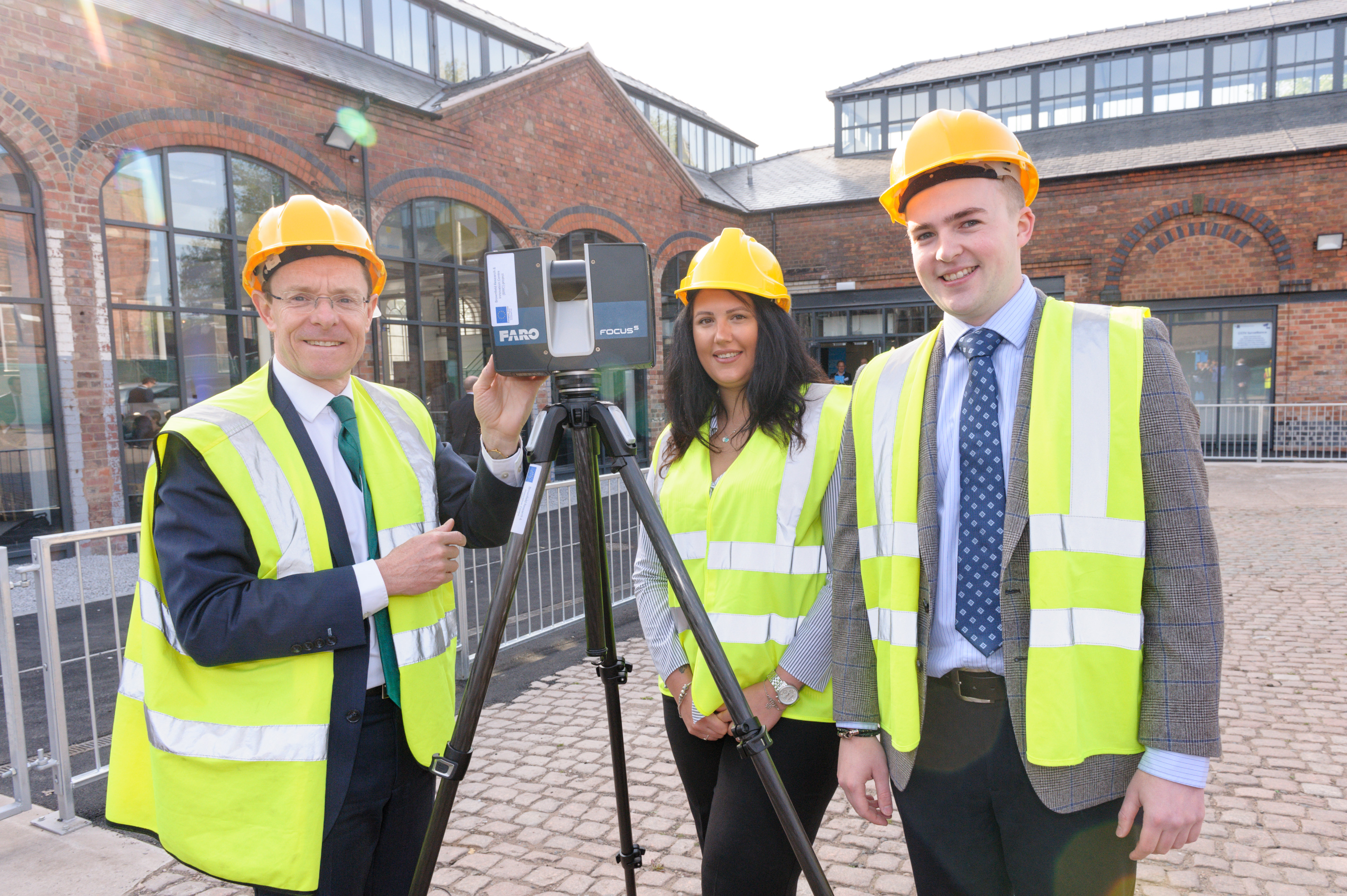Mayor announces plans to tackle region’s housing and skills shortage
Published: Friday 18 May 2018
Plans to use large tracts of former industrial land for housing and give local people the skills to fill thousands of new construction jobs were given a major boost today (Friday May 18).
Mayor of the West Midlands Andy Street announced details of two initiatives to help build more homes, more quickly, on derelict brownfield land and plug the region's growing construction skills gap.
Speaking at the Construction Futures conference in Wolverhampton, the Mayor launched the West Midlands Combined Authority's (WMCA) new £5m Regional Construction Training Fund.

Mayor Andy Street launches the £5 million Construction Training Fund with surveying students Kirsty Barker and Ryan Allen at the University of Wolverhampton
The initiative is aimed at recruiting an army of local people to help fill the 2,800 additional jobs now being created each year by the region's booming construction industry.
The Mayor also announced details of a National Brownfield Institute to be built on the University of Wolverhampton's Springfield campus and dedicated to delivering more efficient ways of getting former industrial land ready for development.
The Institute, which will support the WMCA's drive to use brownfield land first for new developments, will also research advanced methods of construction such as modular housing.
The Mayor said: The institute and training fund will help safeguard and nurture our region's most important assets - its people and land - helping to give everyone the opportunity of a decent job and an affordable home.
The West Midlands economy is going from strength to strength but that growth brings its own pressures and we need to build 215,000 new homes by 2031 to meet our future housing and economic needs.
That will require fresh ways of thinking and greater use of new, advanced home building methods.
But we also need to make sure local people have those skills most needed by house builders and companies building the big transport infrastructure schemes and commercial developments coming on stream.
At the moment many are struggling to find local people to fill those jobs so this new training fund will involve working closely with the construction industry to close that skills gap
The conference, which was held at the Springfield campus and attended by some of the region's biggest construction companies, heard how the fund would be used to train a minimum of 2,280 recruits over three years.
The training programme would focus on the unemployed and low-waged to help boost the region's productivity and underpin continued economic growth.
Training would be offered at a minimum of three locations across the WMCA area using a network of colleges and training providers.
They would work closely with developers engaged in housing and local infrastructure developments, including HS2, to create a new generation of construction workers equipped with the skills most in demand.
Research by the Construction Industry Training Board (CITB) found that the West Midlands will have around 215,000 people employed in the sector by 2020 - an increase of more than 10,000 jobs since 2015.
Professor Geoff Layer, Vice-Chancellor of the University of Wolverhampton, said: Our vision for Springfield is that it becomes a hub for excellence in construction and the built environment on a national and even international scale.
The National Brownfield Institute is a major part of these plans and we see it as being very much a beacon for skills, providing solutions through innovation and new technology for the sector as a whole.
There is a huge amount of brownfield land across the Black Country and wider West Midlands and we are looking forward to helping play an integral role in identifying and unlocking that land's potential for regeneration and in particular supporting ways to address the housing shortage."
As part of its drive to use brownfield land first the WMCA has set aside £200m to prepare former industrial sites, many of which are in the Black Country, for development.
Support for the acquisition and clean-up of land and the associated infrastructure needed to unlock brownfield sites was also at the heart of a £350m Housing Deal announced for the West Midlands by the Chancellor in March.
